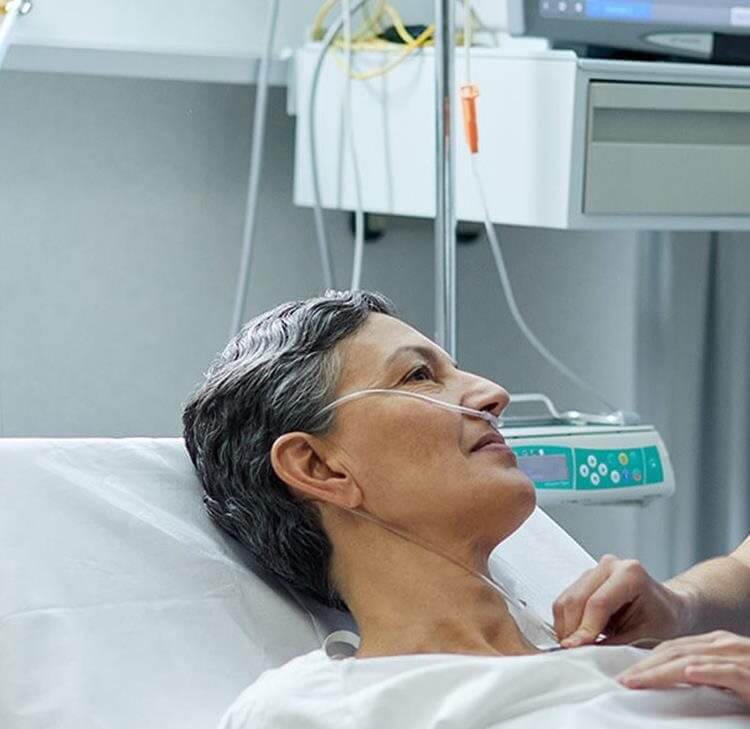Chief Coroner Guidance - R (on the application of Maughan)
The Chief Coroner has helpfully published new guidance in the form of Law Sheet 6, dealing with the judgment of R (on the application of Maughan) v HM Senior Coroner for Oxfordshire. In Maughan, the Supreme Court ruled that all conclusions in coronial inquests are to be determined on the civil standard: the balance of probabilities.
This overruled previous precedent that the standard of proof for Unlawful Killing and Suicide Conclusions was the criminal standard, beyond reasonable doubt. For many years the Coroner or jury could only return an Unlawful Killing Conclusion if they were satisfied beyond reasonable doubt that the death was caused by the crime of murder, manslaughter or infanticide. Now following the decision in Maughan the Coroner only has to be satisfied of this on the balance of probabilities. You can read our earlier blog here and article here on the implications this may have for NHS organisations.
The Chief Coroner’s new guidance highlights several take away points from the judgment of Maughan.
Impact on criminal proceedings
It is made clear that where a coroner reaches a Conclusion of Unlawful Killing, this has no bearing on criminal proceedings because of the distinct difference in the standard of proof. Previously, an inquest would apply a criminal standard so it would be unusual to have an Unlawful Killing Conclusion without a criminal conviction.
Under the new law, the Chief Coroner states clearly that where there has been a criminal trial without conviction or the CPS have decided not to prosecute, a coroner can still reach an Unlawful Killing Conclusion.
Wider context
The guidance highlights that although the lower standard of proof will have some impact on the increase of Unlawful Killing Conclusions, it must be viewed in its wider context. In 2019 Unlawful Killing made up 0.5% of all inquest conclusions. The Chief Coroner makes clear that the issue of Unlawful Killing will only feature in relatively few cases.
If a conclusion of Unlawful Killing is reached it should be well-reasoned and fact specific. There is no requirement for a coroner to use any particular wording on the Record of Inquest, but it remains that a coroner, wherever possible, should record a short form conclusion.
The Chief Coroner’s guidance does provide some reassurance that Unlawful Killing will remain a relatively rare conclusion in the Coroner’s Court. The Chief Coroner makes a clear the distinction between inquests and criminal proceedings. Inquests remain a ‘fact-finding exercise and not a method of apportioning blame’. However, it is clear from the Guidance that even where there has been a criminal trial without conviction or the CPS have decided not to prosecute the Coroner can and will still return an Unlawful Killing Conclusion because the standard of proof is lower at inquest. In those cases where there has been a police investigation which has not resulted in prosecution, Trusts will need to be extra vigilant at inquest to the possibility of an Unlawful Killing Conclusion and in those cases we would recommend seeking legal advice at an early stage. Do get in touch with us if we can help with this or any other issues.
Contact

Mark Hickson
Head of Business Development
onlineteaminbox@brownejacobson.com
+44 (0)370 270 6000
Discover more
Related expertise
You may be interested in...
Published Article
Prevention of future deaths reports: A guide for independent providers
Online Event - Shared Insights
Shared Insights: 10 years on from Montgomery - Shared decision making and consent
Legal Update
A review of mental health related Prevention of Future Deaths reports: What can healthcare providers learn?
On-Demand - Shared Insights
Shared Insights: Coroner's Question Time
Legal Update - Maternity services
Improving maternity care for recent migrant women with language barriers
Opinion
Reports to Prevent Future Deaths: Themes related to acute hospitals and emergency services
Online Event - Care Focus webinar series
Care Focus: Critical incident - Inquest
Training
Mock inquest training course
On-Demand - Shared Insights
Shared Insights: CQC enforcement and prosecution in the health and care sector
Guide
Guide to inquests for mental health patients
Legal Update
Death certification reform in England and Wales: How will health and social care be affected?
On-Demand - Shared Insights
Shared Insights: Insights from the Chief Coroner of England and Wales
On-Demand - Shared Insights
Shared Insights: Focus on maternity and neonatal safety
On-Demand - Shared Insights
Shared Insights: Coroner's question time
Opinion
Inquiry into the coroner service halted – so what next?
On-Demand - Shared Insights
Shared Insights: Preparing and delivering organisational learning evidence in the Coroner’s Court
Legal Update
Death certification reform in England and Wales – how will healthcare providers and commissioners be affected?
Opinion - Maternity services
Coronial investigations of stillbirths - summary of consultation responses
On-Demand - Shared Insights
Shared Insights: Improving communication with families through the inquest process
On-Demand - Shared Insights
Shared Insights: Coroners Question Time
On-Demand - Shared Insights
Mock inquest: Guide to giving evidence remotely at a coroner’s inquest
Guide
Guide to preparing and delivering evidence of organisational learning to the Coroner
On-Demand - Shared Insights
Shared insights: Mental Capacity
Legal Update
Improving patient safety incident and complaint responses to rebuild broken trust
On-Demand - Shared Insights
Shared Insights: Coroner’s Question Time
Legal Update
Inquests and Article 2 of the ECHR: A practical guide following the case of Maguire
Legal Update
Learning from Reports to Prevent Future Deaths in Mental Health settings - A Review of PFDs nationally 2022-2023
Legal Update
Reports to Prevent Future Deaths: What are the issues affecting ambulance trusts nationally?
Guide
Guide to writing statements for an inquest
Guide
Guide to the coroners' inquest process for witnesses
On-Demand - Shared Insights
Shared Insights: PSIRF and what it means for independent providers
On-Demand - Shared Insights
Shared Insights: Coroners’ Question Time
Legal Update - Public matters newsletter
Public matters - January 2023
Opinion
Coroner’s refusal to issue a Prevention of Future Deaths Report following death in prison custody inquest was lawful
On-Demand
Insights from the Chief Coroner by His Honour Judge Thomas Teague, KC
On-Demand - Shared Insights
Shared Insights: Focus on emergency medicine
Guide
Checklist for taking part in a remote inquest hearing
Legal Update
Health and Care Regulation – The Present and the Future
In this article, we discuss some of the themes we have seen in recent CQC regulation as well as providing an update on the development of their new assessment framework. I will also highlight other key developments in the sector that all providers should be aware of.




































